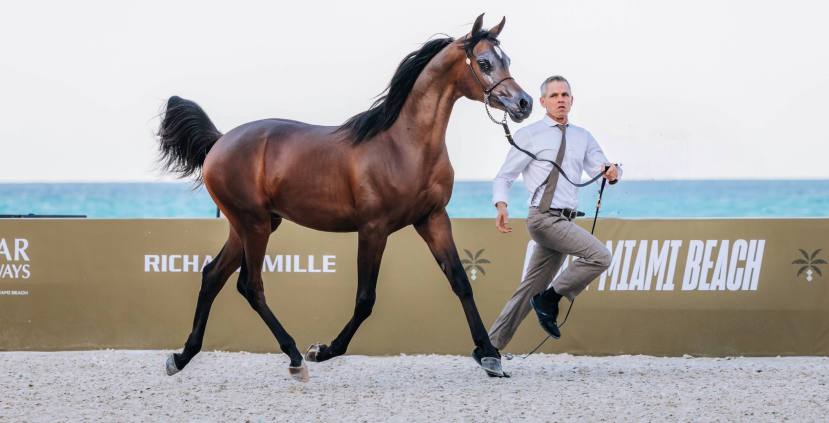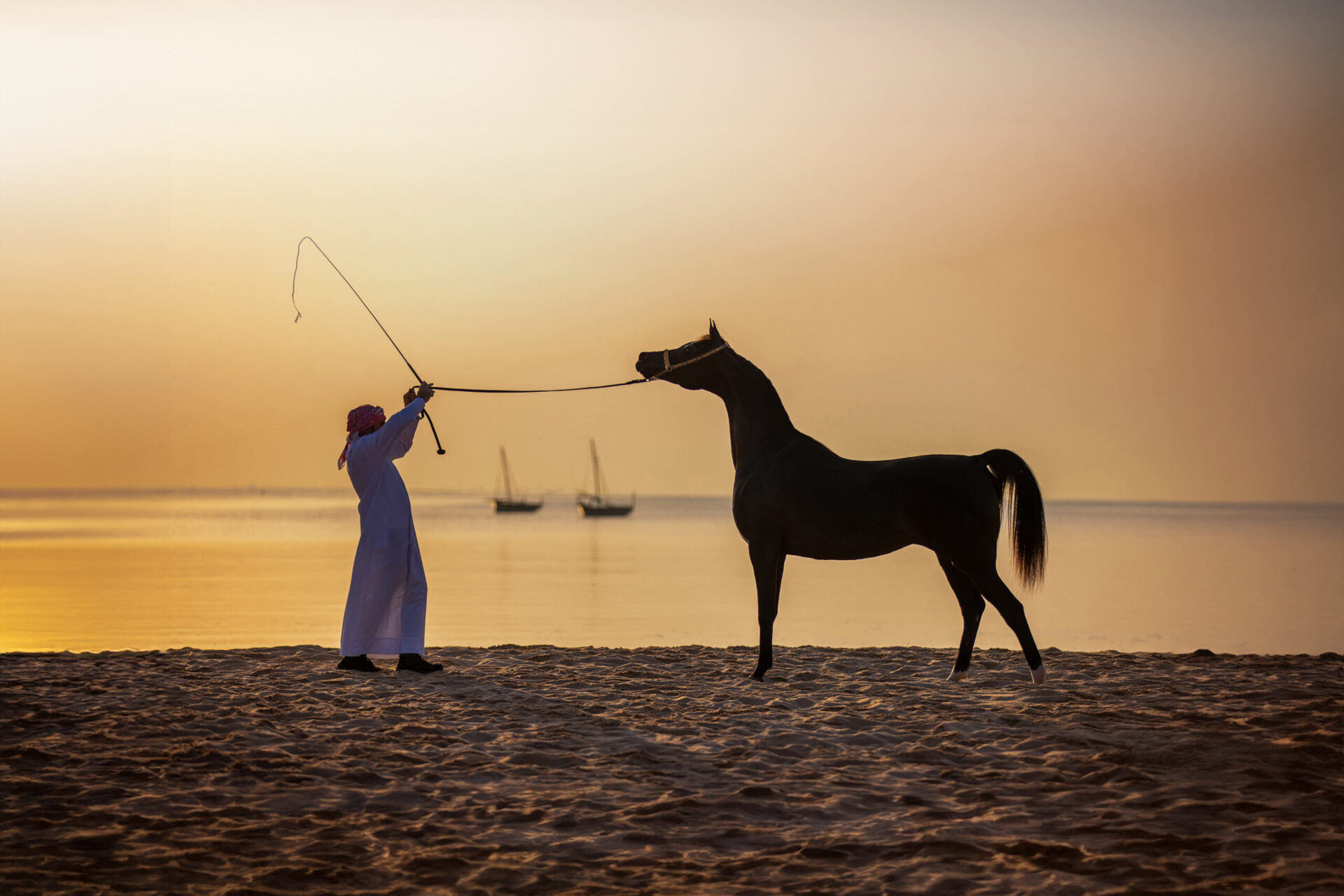
Miami knows how to put on a show. It’s a city where spectacle is currency — from Art Basel’s seven-figure installations to champagne-fueled yacht parties that drift until dawn, excess is part of the city’s cultural architecture. For a city obsessed with the newest, flashiest, and most outrageous, the Global Champions Arabians Tour Miami Beach (GCAT) this spring felt almost radical: a masterclass in restraint, precision, and lasting beauty.

The Arabian horse has been called poetry in motion — a living sculpture shaped by desert winds and centuries of devotion. In Miami, a city that thrives on instant gratification, these creatures offered something different: proof that some forms of greatness don’t need amplification. Under the sun-bleached sky, with the Atlantic’s restless waves crashing just behind the competition ring, the world’s finest Arabian horses were judged on beauty, movement, and poise — not popularity or bravado.

And yet, true to Miami’s nature, it wasn’t just the Arabian horses at the Global Champions Arabians Tour Miami Beach that turned heads. Major Food Group’s culinary heavyweights — Carbone, Sadelle’s, and ZZ’s — transformed the venue into a gastronomic playground, where guests floated between artisanal mocktails, vintage wines, and decadent bites that played to Middle Eastern and Miami palates alike.

Everywhere you looked, there was a quiet acknowledgment: this was luxury, but not as Miami usually knows it.

In the evenings, the energy swelled. Sting, the 17-time Grammy winner, took the stage on opening night with a set so intimate it felt surreal.
Later, Miami’s own Flo Rida detonated the finale with a laser-lit, fireworks-crowned performance, culminating in DJ Khaled’s thundering “All I Do Is Win.”

The crowd — a constellation of power players and personalities — danced along: Qatar royalty, FIFA’s Gianni Infantino, Jeff Bezos, Martina Navratilova, Karolina Kurkova, and local politicians mingling with international business moguls. The event erased the usual velvet ropes that often segment Miami’s elite gatherings.

Here, if you were invited, you belonged. No hidden VIP lounges. Just a sea of sharply tailored suits, statement dresses, and Middle Eastern-inspired finery — an effortless blend of Miami verve and Arabian refinement that turned the sands of South Beach into something resembling a desert dreamscape.

For GCAT Miami Beach, presented by Qatar Airways and supported by Richard Mille, this event marked more than a glamorous stopover. With $2.7 million in prize money and judging of uncompromising standards, the event underscored GCAT’s mission to elevate the Arabian horse to its rightful place on the global stage. As Chairman Faleh Al Nasr put it, “We’ve brought the passion and artistry of Arabian horses to a global audience here, in a city that embraces culture, elegance, and excellence.”

But beyond the dazzling production and celebrity firepower, something quieter — and perhaps more lasting — unfolded. Watching the Arabian horses move across the sand, you couldn’t help but feel the centuries of heritage stitched into every stride: the sculpted heads, the arched necks, the effortless grace passed down through Bedouin bloodlines. In an era obsessed with the new, their endurance felt almost defiant.

The Miami Beach showcase is just one chapter in GCAT’s international story, following Scottsdale’s season opener and heading next to São Paulo, Brandon, Las Vegas, and Doha. Cities like Dubai, Paris, Monte-Carlo, and Sydney round out the global calendar — each location chosen not just for glamour, but for its ability to honor a deeper cultural legacy.

As the final fireworks faded into the Miami night, it was clear the Global Champions Arabians Tour Miami Beach hadn’t just staged another luxury event. It had reset the bar — merging ancient artistry with modern spectacle, and proving that, sometimes, the most breathtaking forms of power and beauty are the ones shaped by time, not trend.
Photos compliments of: Global Champions Arabians Tour Miami Beach presented by Qatar Airways

